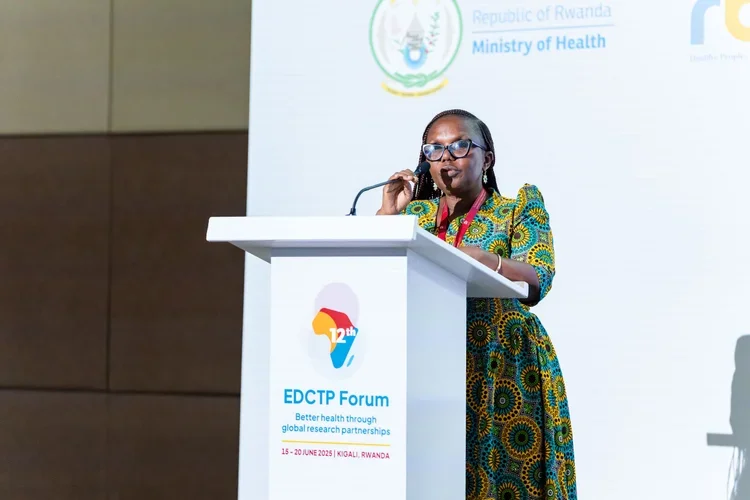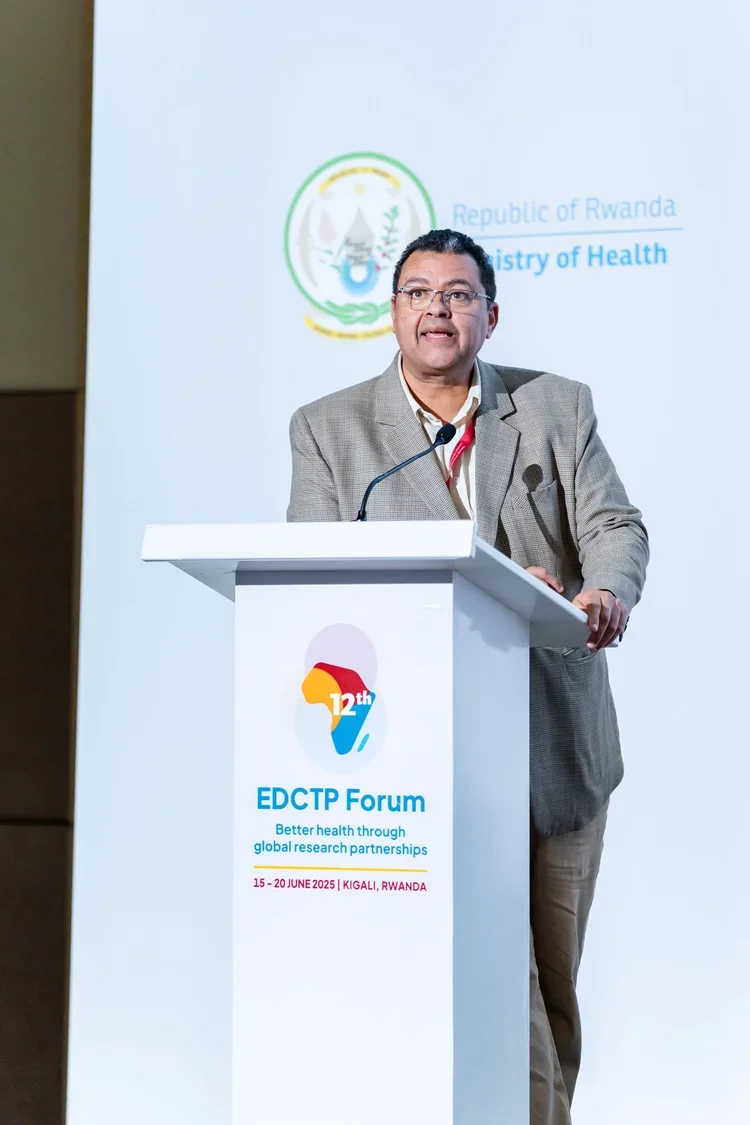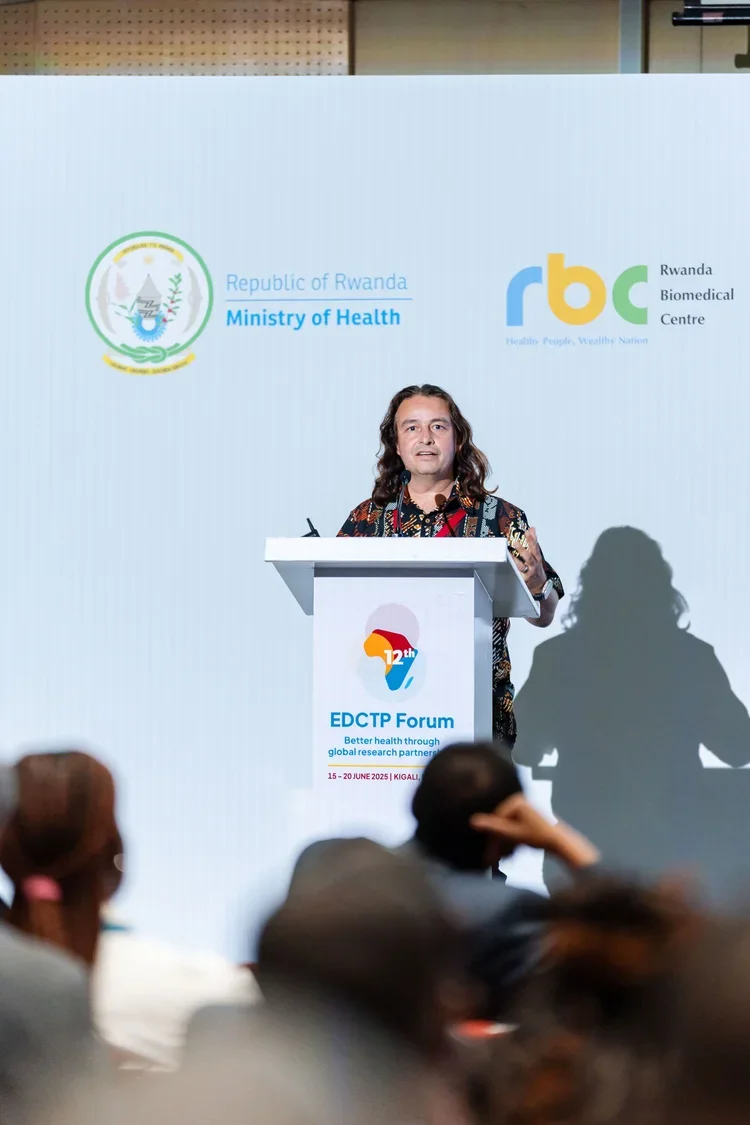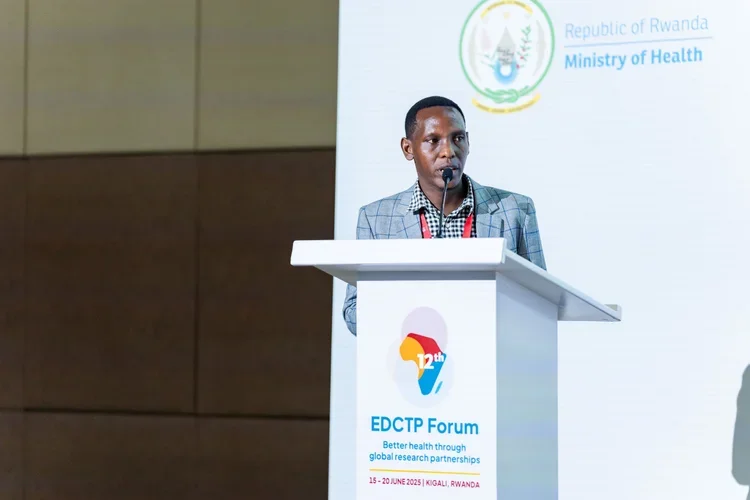Building bridges for genomic surveillance: how the GenEpi Network is shaping Africa’s future for disease surveillance and public health



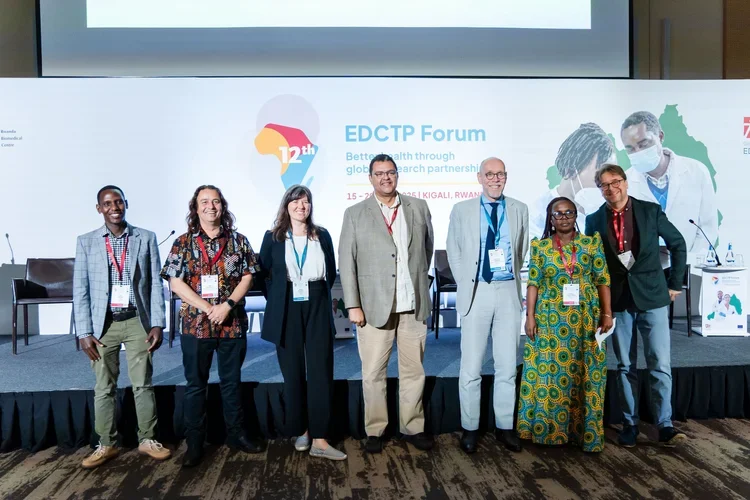
At the Kigali Convention Centre in June, over 140 participants of the 12th EDCTP Forum gathered for a scientific symposium that showcased how a group of scientists, institutes, and public health officials is transforming genomic epidemiology for public health across sub-Saharan Africa. They are members of the GenEpi Network - a diverse network of over 50 institutions in 19 African and 10 European countries with a bold yet simple mission: strengthen Africa’s ability to detect disease outbreaks early and respond faster.
Why the GenEpi Network matters
The COVID-19 pandemic showed the world just how vital genomic surveillance is - using genetic sequencing to track viruses and other pathogens. But in many parts of Africa, efforts to do this have been slowed by three big challenges:
too few trained experts,
weak infrastructure for sharing and linking data,
delays in collaboration between public health officials, researchers and policy makers
During COVID-19, to tackle these gaps head-on, the Africa Pathogen Genomics Initiative (Africa PGI) was launched. The initiative rapidly expanded sequencing capacity by equipping and training National Public Health Institutes and laboratories in more than 30 countries. It enables the early detection of variants and supports outbreak investigations across the continent.
The GenEpi Network, jointly funded by Global Health EDCTP3 and the Gates Foundation, builds on this foundation by connecting public health and academic institutions across Africa, ensuring that the capacity developed through Africa PGI is applied to a wider range of public health challenges beyond COVID-19. To achieve this, the GenEpi Network has a model rooted in collaboration and cross-learning. As principal investigator of EpiGen Ethiopia, Tobias Rinke de Wit, put it: “Sharing protocols, case report forms, training opportunities, and molecular data will be exciting and contribute to pan-African capacity building.”
Since its launch in late 2023, the GenEpi Network has rapidly established itself as a collaborative platform for advancing genomic epidemiology. The network has grown to over 230 members, produced more than 7,300 genomic sequences, and trained over 650 participants through 50 workshops, resulting in over 20 scientific publications and support for over 25 graduate students. These collective efforts culminated in the first GenEpi Scientific Symposium at the EDCTP Forum, highlighting the network’s role as a driver of scientific collaboration, capacity-building, and innovation in Africa and beyond.
Highlights from the symposium
The symposium, GenEpi Network: Strengthening Genomic Epidemiology for Surveillance and Control of Infectious Diseases in Africa, was organized by Lauren Fromont (EpiGen Ethiopia/ISGlobal, Spain) and chaired by Dorothy Yeboah-Manu (PANGenS/Noguchi Memorial Institute for Medical Research, University of Ghana). It brought together some of the brightest minds in genomic surveillance.
The GenEpi symposium underscored how genomic approaches can be applied directly to pressing public health challenges:
Wastewater surveillance in East Africa and the DRC: Building on methods refined during COVID-19, researchers presented how wastewater monitoring is now being used to track the current mpox outbreak. By detecting viral fragments in community wastewater, this approach provides an early-warning system that complements clinical surveillance and helps health authorities respond more rapidly to emerging threats.
From sequence to vaccine: Another presentation by Prof Tulio de Oliveira (director of the Centre for Epidemic Response and Innovation (CERI) at Stellenbosch University and coordinator of the GenPath Africa project) explored how genomic data can drive vaccine development. In partnership with Afrigen, the South African Medical Research Council , and the mRNA Technology Transfer Hub in Cape Town, teams are characterizing genomes to inform the design of potential mRNA vaccines in South Africa. This work demonstrates how discovery science can translate into practical capacity for local vaccine production, reducing reliance on external supply chains.
As the PHA4GE initiative noted: “Regional networks such as GenEpi were spotlighted for their role in advancing genomic surveillance, data sharing, and rapid outbreak response efforts across the continent.” (Alan Christofells, University of the Western Cape, South Africa, Coordinator of Next Generation Sequencing for Public Health, and Africa CDC representative)
Unlocking the future of genomic surveillance
The panel discussion at the symposium made clear that looking ahead, the success of genomic surveillance hinges on three aspects:
1. Public-private partnerships
The private health sector must play a stronger role in care delivery coordinated with the public sector, scaling innovation, securing supply chains, and supporting local manufacturing. Aligning commercial incentives with public health goals is essential to building resilience and avoiding shortages during outbreaks.
2. AI for public health
AI tools hold great promise - but only if professionals can use them to strengthen their causal research and development. A recent Africa CDC survey showed fewer than 9% of respondents had any familiarity with AI tools in surveillance. Training, exposure, and user-focused design are crucial to transform raw data into actionable insights.
3. Long-term sustainability
For capacities built today to endure, genomic surveillance must be institutionalized. That means embedding efforts like the GenEpi Network within Africa CDC and WHO frameworks, aligning with global initiatives such as the Global Consortium for Wastewater and Environmental Surveillance for public health (GLOWACON), and unlocking diverse funding - including from sectors beyond health, such as defence.
A shared mission
The GenEpi Network’s mission is to move beyond isolated projects to a thriving community of practice that strengthens national public health institutes across sub-Saharan Africa.
As the ODIN team concluded: “Overall, the symposium served as an excellent platform for knowledge exchange and community building. We look forward to continuing our engagement with the GenEpi Network and contributing to our shared mission.” (Vito Baraka, National Institute for Medical Research, Dar es Salaam, Tanzania)
The GenEpi Network is not an isolated effort - it is part of a global movement to create synergies in genomic surveillance. Because when it comes to safeguarding health, one truth is clear: we are stronger together.
Authors: Lauren Fromont, Stefanie Sowinski
Reviewers (in alphabetical order): Hannah Faber, Rolf Lood, Tulio de Oliveira, Tobias Rinke de Wit, Angela Tessarolo, Anim van Wyk, Dorothy Yeboah-Manu
